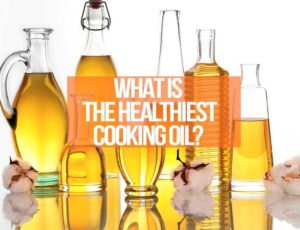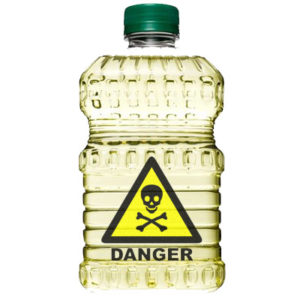If our digestion is poor, we can make it better in 2017 and if it is good, we can make it great…or maybe even..ah-hem…perfect! Perfect digestion of food and emotions is the key goal of Ayurveda. This is achieved through a clear relationship with Nature and harmony with the underlying field of consciousness.
With strong digestion, we have robust bodies. With strong digestion, we love better. With strong digestion we can more capably pursue a spiritual path.
How Did We Get Here?
Five decades ago we started a massive experiment. The introduction of processed foods, chemical toxins, artificial ingredients, and huge amounts of sugar into our food damaged our digestive systems to such an extent that many people cannot eat a full range of food anymore. We have eliminated “hard-to-digest” foods because of diminished digestive capacity and in doing so have become deficient in a host of vitamins and minerals and food qualities that our bodies need for optimal functioning.
Many people have eliminated gluten, meat, nuts, seeds or dairy, for instance, to avoid digestive reaction. Even if you have mitigated a digestive issue through an elimination diet, the remedy is probably temporary. In time, some other digestive issue will arise.
Ayurveda promotes perfect digestion as the singular most important key to radiant health. We should be able to digest all real foods. With time and improved digestion you should be able to reintroduce any foods you have temporarily eliminated.
But What If My Digestion Is Fairly Good?
Even if the range of food you eat is broad and you have no digestive concerns, improved digestion can help to process and eliminate the environmental chemicals, toxins, and pollutants that are difficult to avoid, even if we consume only organically grown foods.
According to the EPA [Environmental Protection Agency] more than 4 billion pounds of toxins are released in the U.S. every year and 72 million pounds of these are known carcinogens. Toxins are in our air and settle on our food, on our skin, and in our lungs no matter how careful we are. Many air-borne toxins cannot be removed from organic foods with washing.
Is There Any Good News?
Of course! If your digestion is strong enough to digest a full range of real foods, then it will be sufficiently primed to deal with and eliminate the omnipresent toxins in the environment. If you cannot ably digest all real foods, then environmental toxins will toss you around and have their way.
Every one of us can benefit from some daily improvements to our all-important digestive process. Ayurveda has guidance for you.
Toxins and Chemicals in Our Air and On Our Food
Hard to digest environmental toxins, pollutants, and preservatives that cannot be digested and eliminated because of diminished digestion often wind up in our fat cells and can move through our blood and through the brain barrier causing diminished cognitive function.
Ultra processed foods have wrecked our digestion and in turn our natural ability to detox. The rise of food sensitivities and intolerance is evidence of our inability to detoxify. Every day medical researchers are finding new toxins in the brain. The brain reacts to these toxins by losing capabilities and shutting down. We have seen this spike in brain issues such as dementia and Alzheimer’s and the dramatic increase not just attributed to us living longer—but rather there is a toxic cause for the dysfunction, and it all relates to digestive capacity.
Here is the good news! If your digestion is strong enough to digest a full range of real foods, then it will be sufficiently primed to deal with and eliminate omnipresent toxins that find their way to us. It’s in your hands…or on your fork you might say.
Importance of Good Fats for Digestion
Until the 1950’s the primary source of energy for the human organism was good, natural fats. At that time the food industry replaced natural fats with:
- Processed fats
- Refined fats
- Bleached fats
- Deodorized fats
- Boiled fats
- and an emphasis on sugar for energy
When you press a seed to make a vegetable fat, that oil is extremely vulnerable to rancidity. Just one photon of light and it begins to become rancid. So in order for the food industry to make oils shelf-stable they bleach, deodorized, and refine oils until there are no nutritional ingredients left that could ever go rancid. Nothing is left that can break down on the shelf and therefore can not break down in your body.
Any oil you find in a grocery store in a plastic bottle is indigestible. Only highly processed oils can resist becoming rancid in plastic bottles. Processed foods use these highly processed oils. If there is any oil in your processed food, do not eat it–it is indigestible from the processing with additives and preservatives or it is rancid. Not good alternatives.
Processed oil, which cannot be digested, congests directly in our liver and gall bladder mucking up the whole system. This is what makes it difficult for us to digest “hard to digest foods.” Keeping the liver and gall bladder clean and doing their jobs is the key strategy for full-range, healthy digestion and a long, healthy life.
When we eliminate processed fats and eat healthy, whole fats we have done wonders for ourselves. Our human physiology is built to primarily be healthy fat burners–not processed fats or sugars.
If we are Good Fat Burners as intended (according to Dr. John Douillard), we
- are happier — good fat burners don’t get depressed
- have good blood sugar — can’t get diabetes
- maintain proper weight — do not get fat
According to Dr. Douillard, these are the 3 epidemics of our time–depression/mood disorders, diabetes, and obesity.
Healthy digestion is the source solution and the pivot point is eating good fats while seriously reducing processed foods, sugars, and toxins.
 The only good fats I recommend are:
The only good fats I recommend are:
Cooking – organic ghee, organic coconut oil, organic avocado oil
Cold – organic, cold-pressed virgin olive oil as on salads–never cook with olive oil.
Look for good brands of oils in dark, glass jars.
May you have a blessed 2017. Live with radiant intention and be well.
Note: Read our article on using the right kind of oil




